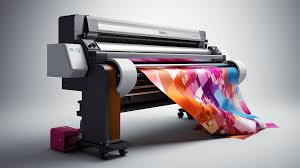Have you ever attended an event and you were not admitted beacuse you don’t have ticket or misplaced your ticket? Have you ever bought an event ticket online?
In this blog post, you will know the reason why you were not admitted. You will discover the purpose, benefits and how it works of event tickets and where you can get event ticket.
An event ticket serves several purposes, primarily aimed at facilitating entry and participation in a specific event. Here are some of the main purposes of an event ticket:
PURPOSE OF EVENT TICKET
Admission: The primary purpose of an event ticket is to grant the holder access to a specific event. Whether it’s a concert, sports game, theater performance, conference, or any other gathering, a ticket acts as proof that the holder has the right to attend.
Control and Security: Tickets help event organizers control the number of attendees. This is crucial for maintaining safety, ensuring that the venue doesn’t become overcrowded, and complying with legal capacity limits.
Revenue Generation: Selling tickets is a significant source of revenue for event organizers, whether they are artists, sports teams, performers, or organizers of conferences and expos. The funds generated from ticket sales often contribute to covering the costs of organizing the event and generating a profit.
Seat or Area Allocation: In events with assigned seating or designated areas, tickets indicate where attendees should be seated or positioned. This helps manage seating arrangements and ensures a smooth flow of people within the venue.
Authentication: Event tickets include various security features such as barcodes, holograms, or QR codes to prevent counterfeiting and unauthorized access.
Merchandise and Perks: In some cases, event tickets may include additional perks or merchandise, such as VIP access, exclusive event merchandise, or entry to special pre-event activities.
Event Information: Tickets often include important event details, such as the date, time, venue address, and sometimes instructions for entry.
Tracking and Data Collection: Event organizers use ticketing systems to collect data about attendees, which can help them better understand their audience and tailor future events accordingly.
Memorabilia: For some people, event tickets hold sentimental value and become a part of their collection or memorabilia.
Marketing and Branding: Tickets often display logos, artwork, or branding related to the event or the entities involved. This contributes to marketing efforts and creates a sense of anticipation and excitement among attendees.
BENEFIT OF TICKET TO ATTENDEES
For Attendees:
Guaranteed Entry: Purchasing a ticket guarantees the attendee entry to the event, eliminating the uncertainty of whether they’ll be able to attend if they show up without a ticket.
Convenience: Online ticketing systems allow attendees to purchase tickets from the comfort of their homes or mobile devices, reducing the need to stand in long lines for purchasing tickets on-site.
Choice and Customization: Attendees can often choose their seats or preferred areas when purchasing tickets, giving them some control over their event experience.
Early Access and Special Offers: Some events offer early bird tickets or special discounts for those who purchase tickets early, allowing attendees to secure their spots at a lower cost.
Exclusive Access: VIP or premium tickets often come with additional perks like backstage access, meet-and-greets with performers, or access to exclusive areas.
Memorabilia and Souvenirs: Event tickets can become cherished memorabilia for attendees, serving as a tangible reminder of the event they attended.
Security and Authenticity: Tickets with security features provide attendees with a sense of security, knowing that their entry is legitimate and protected against counterfeit tickets.
HOW DOES IT WORKS?
Event tickets work as a means of granting access to a specific event while also facilitating the organization and management of attendees. Here’s a general overview of how event tickets work:
- Ticket Creation and Allocation: Event organizers create tickets using various methods, including physical printed tickets, digital tickets, or e-tickets. These tickets are usually designed with event branding, date, time, venue details, and often include a unique identifier like a barcode or QR code.
- Ticket Sales: Tickets are made available for purchase through different channels, such as online ticketing platforms, physical box offices, authorized ticket sellers, and sometimes even directly from the event’s official website. Attendees can choose the type of ticket they want based on factors like seating preference, ticket tier, and any additional perks.
- Purchase and Payment: Attendees select their desired tickets, enter their payment information, and complete the purchase. Online ticketing platforms offer secure payment gateways to ensure the confidentiality of financial information.
- Ticket Delivery: Once the purchase is confirmed, attendees receive their tickets. For physical tickets, they might be mailed to the provided address or picked up at designated locations. Digital tickets are often delivered via email or through a mobile app, which attendees can then present on their smartphones for entry.
- Ticket Validation and Entry: On the day of the event, attendees present their tickets for validation. This can involve scanning the barcode or QR code using a scanner at the entrance. The validation process checks the authenticity of the ticket and ensures that it hasn’t been used before.
- Access Control: Validated tickets grant attendees access to the event venue. For events with assigned seating, attendees might be directed to their specific seats or sections. In general admission events, attendees can enter the venue and choose their spots within the designated areas.
- Security and Monitoring: Modern ticketing systems often include security features like holograms, RFID chips, or other unique identifiers that make it difficult to counterfeit tickets. This helps prevent unauthorized entry and ensures a secure event environment.
- Event Experience: Attendees enjoy the event according to the details provided on their tickets. This could include enjoying performances, presentations, networking, and other activities based on the nature of the event.
- Data Collection: Throughout the process, organizers collect data on attendees, which can include demographic information, contact details, and purchasing behavior. This data is valuable for future event planning, marketing, and analysis.
- Post-Event Analysis: After the event, organizers can analyze attendance data, ticket sales, and attendee feedback to assess the event’s success, identify areas for improvement, and make informed decisions for future events.
In essence, event tickets act as a bridge between event organizers and attendees, ensuring a smooth entry process, controlled attendance, and an organized event experience for everyone involved. The specific details of how event tickets work can vary based on the event type, ticketing platform, and organizer preferences.
WHERE TO GET OR BUY EVENT TICKET
You can get event tickets from various sources, depending on the event type, location, and your personal preferences. Here are some common places to find event tickets:
- Official Event Websites: Many events have their own official websites where you can purchase tickets directly. This is often the best way to ensure you’re getting legitimate tickets and accurate information.
- Online Ticketing Platforms: There are numerous online platforms dedicated to selling event tickets. Some popular ones include Ticketmaster, Eventbrite, StubHub, AXS, Ticketfly, Ariya Tickets. These platforms often provide a wide range of events and offer secure payment options.
- Physical Box Offices: For events with physical venues, there might be box offices on-site where you can purchase tickets in person. This is common for theaters, sports stadiums, and other large venues.
- Authorized Resellers: Some events partner with authorized resellers to sell tickets. These resellers could be affiliated with the event or venue and ensure that you’re getting valid tickets.
- Third-Party Sellers: Be cautious when purchasing tickets from third-party individuals or websites, as there’s a risk of scams or counterfeit tickets. If you choose to buy from a third party, make sure they are reputable and that the tickets are authentic.
- Social Media and Classifieds: Sometimes, people sell their extra tickets on social media platforms like Facebook, Twitter, or Craigslist. While this can be a way to find last-minute deals, be careful and ensure the legitimacy of the seller.
- Local Outlets: Some events might partner with local stores, outlets, or venues to sell tickets in person. Check with local ticket-selling locations to see if they have tickets available.
- Fan Clubs and Presales: If you’re a member of a fan club or have subscribed to an event’s mailing list, you might have access to presale tickets before they’re available to the general public.
- Mobile Apps: Some events offer mobile apps that allow you to purchase and manage tickets directly on your smartphone.
- Ticket Booths at Events: For certain events, there might be ticket booths set up at the event venue for last-minute ticket purchases.
Remember to research and verify the legitimacy of the source you’re buying tickets from, especially when using third-party platforms or sellers. Always check for reviews, ratings, and any guarantees provided by the seller or platform. It’s also a good practice to buy tickets well in advance, especially for popular events, to ensure you get the tickets you want at a reasonable price.
Check for online event tickets booking platform in Nigeria. Ariya Tickets, Ticketbay, Ticket Hub, Naira Hub and many more.
When next you are planning an event and you need tickets to design and print, get in touch with us for a clan and sharp print.




